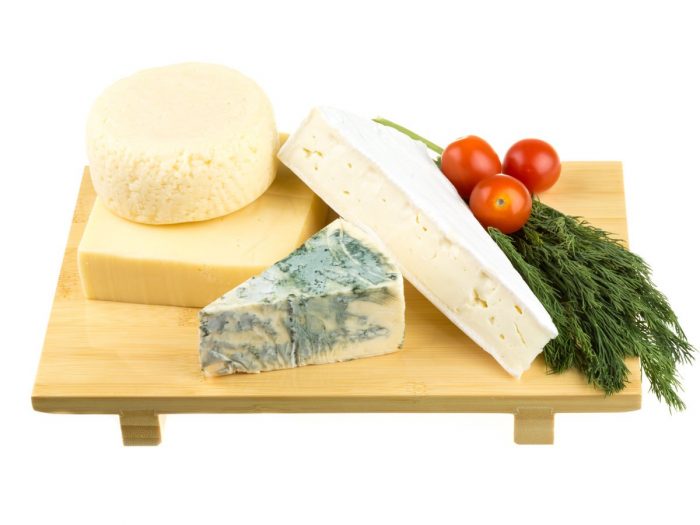Some of the health benefits of cheese include relief from hypertension and osteoporosis. It also helps in maintaining bone health, gaining weight and dental care. For ages, cheese has been part and parcel of daily life in Europe, the Americas, Australia and nearly every country of the world that has a cold climate, except certain countries in the Indian Subcontinent and the Middle Eastern region. That being said, India and some of its neighboring countries have been using a slightly different form of cheese which is commonly known as “cottage cheese” or “paneer” for generations.
Unlike traditional cheese, cottage cheese is not fermented.Over the last 10 years or so, cheese has become widely popular in India and neighboring countries with multinational companies like McDonald’s stepping into these countries with their mouth watering products like pizza and hamburgers which both use a lot of cheese. Contrary to the popular belief of fresh edibles being more nutritious, fermented cheese is far more nutritious than its fresher counterpart.
Cheese is prepared from milk or milk products such as curd. There are many varieties and flavors of cheese available all around the world.
Nutritional Value of Cheese
Cheese contain many nutrients, including vitamins such as vitamin C, B-6, B-12, A, D, E and vitamin K. Other vitamins such as thiamin, riboflavin, niacin are also found in different types of cheese. Intake of cheese also provides certain vital minerals such as calcium, sodium, zinc, phosphorus, potassium and iron to the human body.
Health Benefits of Cheese
The health benefits of cheese include the following:
Dental Care: Cheese has a very high calcium content, the first and foremost thing you need for strong teeth. Moreover, it is very low in lactose content. The older the cheese, the lower the lactose content. This also is beneficial for the teeth as any form of sugar (glucose, maltose or lactose) in food can harm the teeth.
Bone Health: Apart from having a very high calcium content, cheese is also rich in vitamin-B, which is very good for children, women (particularly when pregnant or lactating) and elderly people, for the formation and strengthening of bones and cartilage. The vitamin-B in cheese aids to the proper absorption and distribution of calcium.
Osteoporosis:Osteoporosis is mainly a deficiency disease which is caused due to a deficiency of calcium (non-absorption), resulting in a decrease in bone mineral density. This is particularly seen in women who have undergone menopause, elderly people and children who suffer from malnutrition. This can be treated with protein, calcium and a vitamin-rich diet. Calcium alone will not help much, because the problem is with its absorption and its utilization for bone formation. These three components are found in abundance in cheese. Therefore, cheese can be an ideal part of the diet of those suffering from osteoporosis.
Hypertension: Sodium and cholesterol are the two elements mainly considered harmful for hypertension and hypertensive people are advised to avoid them.In this way, cheese should be viewed critically. The fat content of the cheese depends very much on the quality of the milk, whether it is full fat or full cream, low fat or fat free. In general, high-fat cheeses are more popular, since they tend to taste better. But, keeping in view the public demand and health concerns, low-fat cheeses are also being introduced to the market. This means that you need to be choosy while picking cheese for your home and diet.
Don’t forget the sodium content! Although the sodium content of cheese varies according to the amount of salt added to the milk prior to cheese formation, it is never low enough to be recommended for hypertensive people, as salt is an inevitable part of cheese. In general, cheese is not recommended for people suffering from hypertension (high blood pressure). Although low sodium and low fat cheese is helpful in reducing homocysteine, an agent which is often related with heart diseases, this fact still does not make it recommendable for hypertensive people. Another thing in cheese that can help hypertensive people is the vitamin-B content, if they do choose to eat it.
Weight Gain: Cheese is an excellent food for gaining weight. Cheese is full of proteins, fats, calcium, vitamins and minerals. You need protein for muscle formation and growth, fats for fat-based processes in the body, calcium for heavier and stronger bones and vitamins and minerals for improved metabolic function. You just need to eat a lot of them, do your exercise and sleep an adequate amount.
Other Benefits: Cheese contains conjugated linoleic acid and sphingolipids which help prevent cancer. It contains a lot of vitamin-B which develops in it during the fermentation process. Vitamin-B is very good for maintaining many functions in the body and also for protection against diseases like Beriberi. It also enhances blood formation, strengthens the liver, and facilitates the absorption of nutrients in the body.
How to select and store?
Different types of cheese are available in markets all over the world. Some varieties of cheese such as fresh cheese with no preservatives are to be used within a few days of purchase as they easily spoil. Store cheese in cool places or refrigerate them. Before eating or using cheese keep it at room temperatures for better flavor and texture.

No comments:
Post a Comment